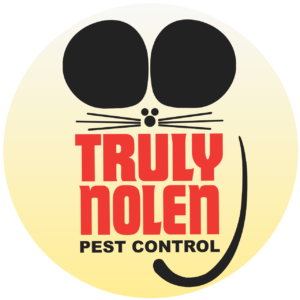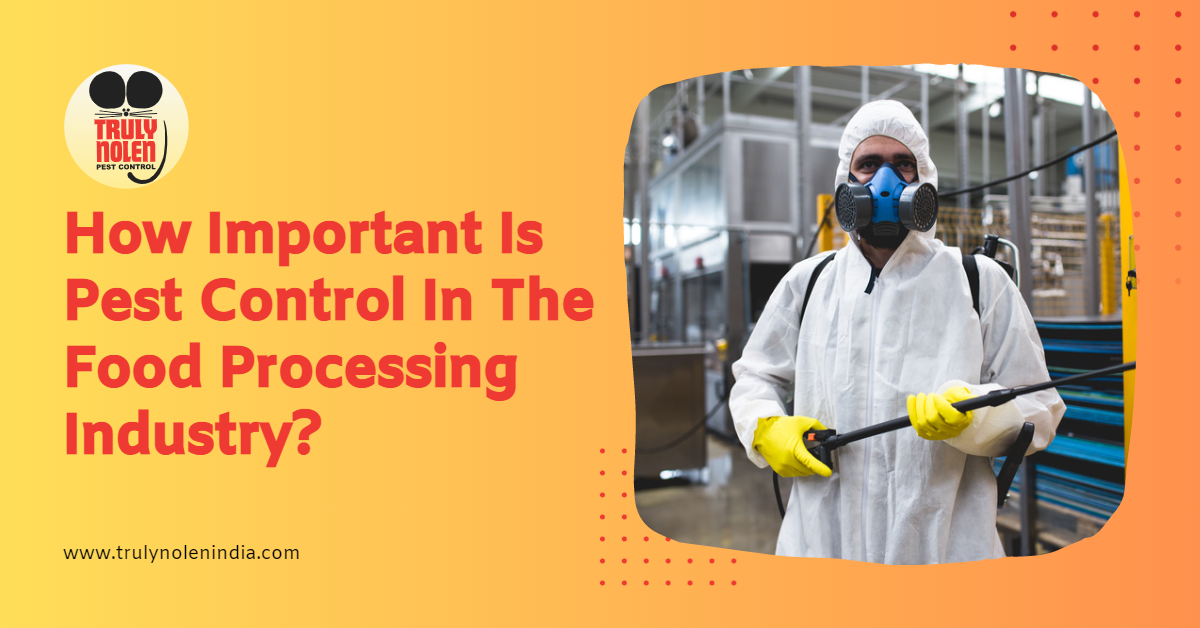Have you ever wondered about the invincible warriors silently protecting the food we consume every day?
In this blog, we’re going to delve into a topic that might not immediately come to mind when thinking about delicious meals – pest control in the food processing industry.
While it may not be the most glamorous aspect, pest control plays a critical role in ensuring the safety, quality, and reputation of the food we enjoy. So, let’s dig in and explore ‘how important is pest control in the food processing industry.’
Understanding The Food Processing Industry
Before we delve into the significance of pest control, let’s take a quick look at the food processing industry. This sector is responsible for transforming raw ingredients into the delicious food products we find on our shelves. From canned goods and frozen meals to fresh produce and beverages, food processing plants handle a multitude of ingredients and require stringent quality control measures.
What Is Pest Control In The Food Processing Industry?
Pest control in the food processing industry refers to the set of practices, protocols, and measures taken to prevent, manage, and eliminate pests within food processing facilities. It involves identifying, controlling, and mitigating the risks posed by insects, rodents, and other pests that could potentially contaminate food products, compromise hygiene standards, and pose health hazards to consumers.
Pest control in the food processing industry aims to protect consumers by preventing food contamination with pests and their associated pathogens and to safeguard the reputation and profitability of food processing companies by complying with industry regulations, maintaining product integrity, and preserving the brand image.
Which Are The Major Pests In The Food Processing Industry?

The food processing industry faces a range of pests that can pose significant threats to food safety and quality. Here are some major food and fodder pests commonly encountered in the food processing industry:
Insects:
Cockroaches: These resilient pests can contaminate food with bacteria, pathogens, and allergens. They are commonly found in warm, moist areas and can quickly infest food storage and preparation areas.
Flies: Filth flies such as house flies and fruit flies are attracted to food and can spread disease-causing organisms. They can contaminate surfaces and food products with their saliva, feces, and body parts.
Flies: Stored product insects: Flour beetles, weevils, and grain moths are examples of pests that infest stored grains, cereals, and processed food products, leading to contamination and product damage.
Rodents:
Rats and mice: These rodents are notorious for their ability to chew through packaging, wiring, and structures. They carry disease-causing pathogens and contaminate food products with their urine, droppings, and hair.
Microorganisms:
Bacteria and fungi: While not visible pests, micro-organisms such as Salmonella, E. coli, Listeria, and molds can proliferate in food processing environments. They can contaminate food products and cause foodborne illnesses or spoilage.
It’s important to note that the specific types of pests encountered can vary depending on the location, nature of the food processing facility, and the surrounding environment. Proper pest monitoring, regular inspections, and effective control measures are essential to mitigate the risks posed by these pests and ensure food safety and quality.
How Important Is Pest Control In The Food Processing Industry?

Pest control is of utmost importance in the food processing industry for several compelling reasons:
Compliance with Regulations: Food processing companies are subject to strict regulations and standards set by food safety authorities. For instance, One of the requirements of the (FSSAI) Food Safety and Standards (Licensing & Registration) Regulations, 2011, Schedule 4, all food establishments must have an effective pest control system in place.
Failure to meet the standards can result in hefty fines, legal issues, damaged reputation, and even closure of the facility. Thus, implementing effective pest control measures is not only good practice but also a legal obligation.
Ensuring Consumer Safety: Pest control is a crucial aspect of maintaining high standards of hygiene in food processing facilities. Regular pest inspections and effective control measures help prevent infestations, keeping the final products free from contamination. This is especially important for sensitive industries like meat processing, dairy, and bakery, where the risk of bacterial growth and foodborne illnesses is higher.
Protecting Brand Reputation: Imagine the impact on a food company’s reputation if news broke out about pests found in their products or facilities. The negative publicity can be devastating, leading to a loss of consumer trust and loyalty. By investing in comprehensive pest control programs, food processing companies can safeguard their brand reputation and demonstrate their commitment to quality and safety.
Ensuring Food Safety: Pests can contaminate food products with bacteria, pathogens, allergens, and other harmful substances. By implementing effective pest control measures, food processing facilities can prevent pests from accessing and contaminating food, reducing the risk of foodborne illnesses.
Maintaining product integrity: Pests can damage and compromise food products, leading to product loss and decreased profitability. Effective pest control measures help protect product integrity and ensure that food products meet quality standards.
Overall, pest control is a vital aspect of ensuring food safety, regulatory compliance, and consumer trust in the food processing industry. By taking proactive steps to prevent and eliminate pest infestations, food processing companies can protect their products, maintain their reputation, and deliver safe, high-quality food products to consumers.
How To Prevent Pests In The Food Processing Industry?

Preventing pests in the food processing industry requires a multi-faceted approach that focuses on eliminating potential entry points, reducing attractants, and implementing proactive measures. Here are some key steps to prevent pests in the food processing industry:
Maintain strict sanitation practices: Keep the facility clean and well-maintained to eliminate food debris and potential food sources for pests. Regularly clean and sanitize all surfaces, equipment, and storage areas. Pay particular attention to hard-to-reach areas and areas prone to moisture buildup.
Implement proper waste management: Establish a comprehensive waste management system that includes proper storage, disposal, and regular removal of waste. Keep waste areas clean and secure, minimizing access for pests.
Seal entry points: Conduct regular inspections to identify and seal any gaps, cracks, or openings in walls, floors, windows, doors, and utility penetrations. This helps prevent pests from gaining entry into the facility.
Install screens and air curtains: Use screens on windows and doors to prevent insects from entering the premises. Air curtains can also be installed at entry points to create a barrier and prevent pests from entering.
Manage outdoor areas: Maintain the surrounding exterior areas by regularly trimming vegetation, removing standing water, and properly storing equipment and materials. This reduces pest harborage sites and deters pests from approaching the facility.
Implement Integrated Pest Management: Adopt an IPM approach, which focuses on proactive prevention rather than relying solely on pesticides. This includes regular monitoring, setting up traps, using pheromone-based lures, and employing biological controls to manage pest populations effectively.
Train and educate employees: Provide comprehensive training to employees on pest control practices, emphasizing their role in maintaining a pest-free environment. Teach them how to identify signs of pest activity, report sightings promptly, and follow proper hygiene practices.
Collaborate with professional pest control services: Partner with a reputable pest control provider specializing in the food industry. They can conduct regular inspections, develop customized pest management plans, and provide ongoing monitoring and support.
By implementing these preventive measures, food processing facilities can significantly reduce the risk of pest infestations, maintain high food safety standards, and protect their products and reputation.
Prevent Pest Infestations In Food Processing Unit With Truly Pest Solution!

Truly Elite Protection System (TEPS) is Truly Pest Solution’s hassle-free and eco-friendly pest control system to prevent pests in the food processing industry.
Truly Elite Protection System is based on Integrated Pest Management (IPM).
- This includes the application of scientific, investigative, technical, and managerial expertise to assess the risk of existing or potential pest infestations within or around the premises.
- Its primary goal is to minimize the use of chemical, biological, or physical adultrations that could contaminate food products.
- Oriental cockroach (Blatta orientalis)
Truly Pest Solution ensures full compliance with both national and international audit requirements within the food processing industry. They meet the rigorous standards set by audits such as AIB and HACCP, FSSAI, YUM international, ISO, and others, guaranteeing top-notch adherence to quality and safety protocols.
In the dynamic world of food processing, safeguarding your products from unwanted pests is paramount. With Truly Pest Solution’s unrivaled expertise and commitment, you can ensure highly effective pest management for your facility.
Don’t let pests jeopardize the safety and quality of your food products any longer.


Leave a Reply